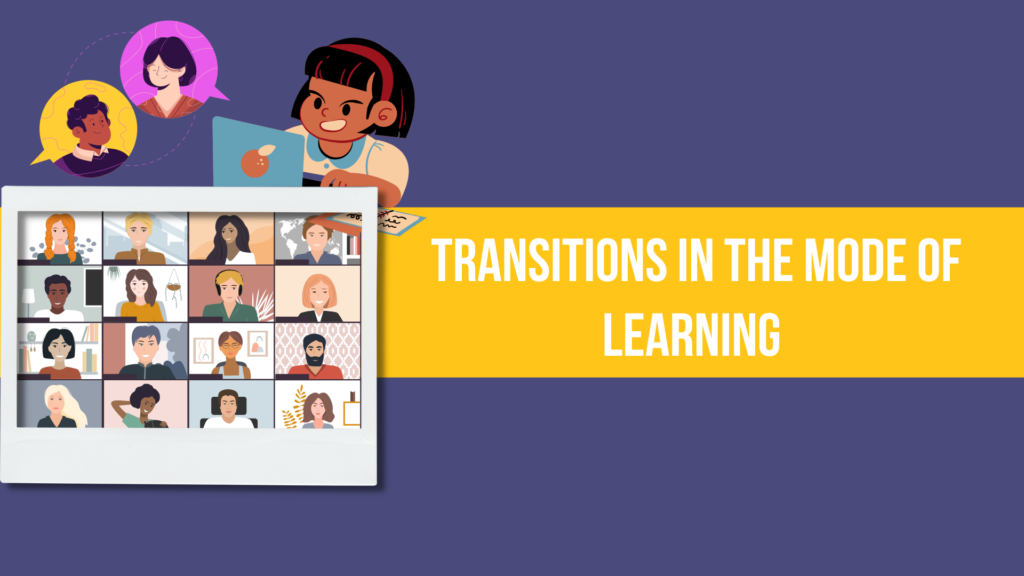Written by Rifdi Syahir
An Institute of Mental Health study conducted during the COVID-19 pandemic found that 9.4% of surveyed Singaporeans met the criteria for anxiety caused by the massive changes brought about in their daily lives. This is one of the results of Singaporeans having to, for example, become accustomed to donning masks and limiting group sizes in accordance with safe management measures.
The pandemic has been a bumpy ride for Singaporeans, especially with inconstant safety measures. The changes COVID-19 brought meant that most Singaporeans had to adapt swiftly.
Such a group were tertiary students. Tertiary education has gone through plenty of changes since COVID-19 hit Singapore’s shores. For instance, in pre-COVID times, tertiary students enjoyed large-scale school events such as Temasek Polytechnic’s Spectacular concert and Republic Polytechnic’s IGNITE! Music Festival, which were events aimed at developing campus vibrancy. However, the unstable COVID-19 situation in Singapore recently caused these events to either be carried out on a smaller scale or be put on hold. In 2021, the IGNITE! Music Festival was held online, and students could not have the authentic festival experience that used to draw hundreds of live attendees yearly during pre-Covid times.

These events make tertiary education a unique part of students’ lives. Attending these events brings plenty of excitement and helps students avoid having a dull outlook on school. Students who took part in these events before they were scaled down or even halted often described them as days from their schooling journey that they would never forget. As a result of these events being halted or scaled down, COVID-19 has made tertiary education less lively and more monotonous.
Besides reduced campus vibrancy, tertiary students have also had to adapt to transitions in modes of learning. For instance, the majority of Temasek Polytechnic students currently do not need to attend any physical lectures anymore. Physical lectures have been replaced with e-lectures on the student’s respective e-learning management systems that students can watch in their own time.
E-lectures allow students to have a more flexible schedule as they can watch lectures and absorb information at their own pace at any point of the day. This newfound flexibility has made learning more conducive for many students.

Nevertheless, changes in modes of learning have not entirely been beneficial for all tertiary students. The pandemic has resulted in certain modules being carried out on a full home-based learning basis. This makes it harder for students to grasp information as they are without the physical presence of a tutor. During physical lessons, tutors can carry out face-to-face consultations with students who have doubts, which are generally more conducive than online consultations.
Additionally, home-based learning also means students have to carry out presentations online occasionally. While some students prefer online presentations as it helps them with their confidence, online presentations are harder to ace. This is caused by a myriad of reasons such as poor audio, difficulty maintaining eye contact and network latency. Consequently, the general consensus among students is that they prefer physical presentations as it is easier to do well.
Strict management measures like a cap on group sizes have also limited mingling between students of different classes. With no intermingling allowed between groups of students on campus, widening social circles have been more difficult for tertiary students. The earlier mentioned reduced campus vibrancy has only aggravated this. Overall, there have been fewer opportunities for tertiary students to socialise outside of their current social circle. This limits students’ opportunities to hone skills such as communication and networking, which are essential in preparing students for their futures in the workforce.
There has been a divide in opinions among students as to whether COVID-19 has adversely or positively affected tertiary education. I am of the opinion that tertiary education has been harmed more than it has benefitted.
While there have been benefits like the introduction of e-lectures, COVID-19 has been much more detrimental to tertiary education. In my eyes, the benefits do not compensate for the damage dealt. Not being able to experience large-scale school events and socialise with more people makes me feel like I have been deprived of the genuine polytechnic experience, which my seniors often bragged about.
When I began polytechnic life, I hoped for an exhilarating experience in which I was able to look forward to exciting events that I had heard plenty of stories about. I had the impression that polytechnic was going to be a balance of enjoyment and hard work. However, the negative changes that COVID-19 have made to tertiary life led to me feeling disappointed because I believe I have not fully experienced how much more enjoyable tertiary life can be. It has been much more hard work than it has been an enjoyment.
I am, however, starting to feel hope that my remaining years in polytechnic will be much more satisfactory. The recent easing of safe management measures meant that large-scale events like the Temasek Regatta and Temasek Spectacular concert were able to return on a scale that was much closer to how it was before COVID-19. This is a positive indicator as this means that tertiary education is well on its way to returning to normal.
It is my hope that Singapore’s COVID-19 situation continues on a positive trajectory so that more easing of measures will be introduced in the upcoming school year to eventually allow students to experience tertiary education as it was before COVID-19. In spite of that, I hope that the beneficial new norms the pandemic has established in tertiary education, such as e-lectures, remain the norm regardless of more lenient measures. My main hope for this upcoming academic year is to see school remain a safe place while being livelier and more vibrant.




